Berlin
German climate activists pledge new wave of blockades
Climate activists said Tuesday that they will stage further protests in Berlin in an effort to force the German government into doing more to curb global warming.
The announcement came as courts are taking a tougher stance against members of the group Last Generation who have repeatedly blocked roads across Germany in the past year.
The group said at a news conference in Berlin that it would begin to stage open-ended protests Wednesday in the government district. From Monday onward, members will try to “peacefully bring the city to a standstill,” it said.
Last Generation accuses the German government of breaching the country’s constitution, citing a supreme court verdict two years ago that found too much of the burden for climate change was being placed on younger generations. The government under then Chancellor Angela Merkel subsequently raised its targets for cutting greenhouse gas emissions, but activists say the measures aren’t consistent with the Paris climate accord.
“As long as there’s no plan we can trust to protect our lives and future, and that’s based on the constitution, we are obliged to demand such a plan with all peaceful means,” said Carla Hinrichs, a spokesperson for Last Generation.
The group wants Germany to end the use of all fossil fuels by 2030, a step that would be extremely ambitious to achieve. The country switched off its last three nuclear plants over the weekend, increasing its reliance on coal and gas-fired power plants until sufficient renewable energy capacity is available.
Last Generation’s protests have drawn sharp criticism from across much of the political spectrum, though there has also been support for their underlying aims.
Three activists were sentenced to between three and five months imprisonment by a court in the southwestern city of Heilbronn on Monday. The judge noted that they had joined a blockade in March hours after being sentenced in a previous case.
One of the protesters, Daniel Eckert, defended his actions after the verdict, saying: “As long as the true criminals aren’t brought before a court but instead continue to destroy the basis of our existence and profit from it, I can’t do anything other than stand in the way of this destruction.”
2 years ago
Zelenskyy 'born for this moment,' Sean Penn says at Berlin
Just hours before Russia began its invasion of Ukraine nearly a year ago, actor Sean Penn had his first on-camera meeting with the country's president, Volodymyr Zelenskyy.
“It was as if he was realizing himself, that he was born for this moment,” Penn recalled in an interview with The Associated Press at the 73rd Berlin International Film Festival on Saturday, a day after the festival premiere of his documentary “Superpower.”
Penn and his co-director Aaron Kaufman were in Kyiv to film a profile of the comedic actor-turned-president when the war broke out. It would be the image of the president walking into the room for that first interview that would have the biggest impact on Penn.
“It’s hard to explain, but there was a resolve in reaction to something that no one has ever faced before,” Penn said.
At a press conference also Saturday, Penn said they returned to the hotel after the interview and the shelling started that very night. When they first met Zelenskyy, he had “a proper suit and a proper office.”
“The next time we saw him, he was in camos and his country was at war,” Penn said.
The outbreak of war sent the documentary on an unexpected track. The film contains further interviews with the president conducted over the past year.
Also Read: Russia has committed crimes against humanity in Ukraine: US
After completing the project, the pair have continued to speak off camera. Zelenskyy presented the Hollywood star — who has been involved in numerous international humanitarian and anti-war efforts over the years — with the Ukrainian Order of Merit last year. Penn was also given a plaque on a Kyiv walkway honoring world leaders who have shown solidarity with Ukraine.
Penn told the AP that people would be most surprised by Zelenskyy's “command of the mechanisms of government.”
“Not only his, but all of those upon whom he is reliant, his sense of mapping the diplomatic territory," he said. "He’s on fire. He has that extreme gift for politics.”
Also read: Ukraine in mind, US frantic to avert Mideast showdown at UN
Penn recalled the “civility” he saw when leaving Ukraine via the Polish border a few days after the invasion began.
“No one was honking. No one was trying to drive around the other and take and there was a kind of quiet acceptance," Penn said during the interview. "You know, and these were families being torn apart. Some, most remain torn apart.”
During a later visit to Ukraine, Penn loaned one of his two Oscars to Zelenskyy, telling him: “When you win, bring it back to Malibu.”
“The Oscar is there in his office and it’s ready to be melted anytime he wants to melt it,” Penn clarified in the press conference after threatening to smelt his awards in public if Zelenskyy was not on the program for last year's Oscar telecast.
The Academy of Motion Picture Arts and Sciences did not include a video address from the president, opting instead for a moment of silence in support of the people of Ukraine. Zelenskyy did address the opening of the Berlinale on Thursday, exhorting artists and filmmakers to express support for Ukraine.
Penn said at the press conference that the gift of the Oscar was inspired by his “continuing shame towards the leadership of the Academy, the motion picture academy, in choosing to present Will Smith smacking Chris Rock rather than the greatest symbol of cinema and humanity living today on their broadcast.”
Penn's two Oscars both were for best actor, in 2003 for “Mystic River” and in 2008 for “Milk.” His previous directing credits include “Flag Day,” “Into the Wild” and “The Pledge.”
While it is not unusual for entertainment personalities to get behind a cause, “Superpower” sees Penn travel all the way to the front line of the war to talk to soldiers in the trenches. When it comes to his drive and determination, the star couldn’t tell you where that comes from.
“I could make up a number of answers” he joked to the AP. “It’s something I just don’t really ultimately think about, though I’ve been asked many times. … I don’t have the words for it.”
3 years ago
Poland asks Berlin to OK Ukraine tanks; Kyiv targets graft
Poland has officially requested permission from Germany to transfer its Leopard 2 battle tanks to Ukraine where they can help fight Russia's invasion, Polish Defense Minister Mariusz Błaszczak said Tuesday.
German officials confirmed to the dpa news agency they had received the application and said it would be assessed “with due urgency.” German Foreign Minister Annalena Baerbock said Sunday that Berlin, which builds the tanks, wouldn’t seek to stop Poland from providing the high-tech armor to Kyiv.
The development came as Ukrainian authorities moved to crack down on alleged corruption, with almost a dozen senior officials departing Tuesday.
Błaszczak, the Polish defense minister, appealed to Germany “to join the coalition of countries supporting Ukraine with Leopard 2 tanks” — a reference to recent pressure on Berlin to send some of its own tanks. Germany has hesitated to take that step, despite Ukraine's pleas. The tank is adaptable to many types of combat situations.
"This is our common cause, because it is about the security of the whole of Europe!” Błaszczak tweeted.
NATO Secretary General Jens Stoltenberg on Tuesday called for the speedy delivery of new weapons to Ukraine, where a broad battlefield stalemate is expected to give way to new offensives in the spring.
“At this crucial moment in the war, we need to provide Ukraine with heavier and more advanced systems, and we need to do it faster,” Stoltenberg said Tuesday after talks with German Defense Minister Boris Pistorius in Berlin.
Polish officials have indicated that Finland and Denmark are ready to join Warsaw in sending Leopards to Ukraine. Poland wants to send a company of the tanks, which means 14 of them, but they would barely make an impression in a war that involves thousands of tanks. If other countries contribute, Warsaw reckons, the tank detachment could grow to a brigade size.
Read more: Ukraine faces grim start to 2023 after fresh Russian attacks
In Kyiv, meanwhile, the deputy head of Ukraine’s presidential office quit Tuesday after President Volodymyr Zelenskyy pledged to launch a staff shake-up amid high-level corruption allegations.
Kyrylo Tymoshenko asked to be relieved of his duties, according to an online copy of a decree signed by Zelenskyy and Tymoshenko’s own social media posts. Neither gave a reason for the resignation.
Deputy Defense Minister Viacheslav Shapovalov also resigned, local media reported, alleging his departure was linked to a scandal involving the purchase of food for the Ukrainian Armed Forces. Deputy Prosecutor General Oleksiy Symonenko quit, too.
In all, four deputy ministers and five regional governors were set to leave their posts, the country’s cabinet secretary said on the Telegram messaging app.
With Western allies pouring billions of dollars into Ukraine to help Kyiv’s fight against Moscow, Zelenskyy had pledged to weed out corruption which some observers have described as endemic. Zelenskyy came to power in 2019 on an anti-establishment and anti-corruption platform.
Tymoshenko joined the presidential office in 2019, after working on Zelenskyy’s media and creative content strategy during his presidential campaign.
Last year he was under investigation relating to his personal use of luxury cars. He was also among officials linked last September to the embezzlement of humanitarian aid worth more than $7 million earmarked for the southern Zaporizhzhia region. He has denied all the allegations.
Read more: Russia claims progress in eastern Ukraine; Kyiv craves tanks
On Sunday, a deputy minister was dismissed for being part of a network embezzling budget funds. Ukraine’s infrastructure ministry later identified the dismissed official as Vasyl Lozynsky, a deputy minister there.
Oleksandr Kubrakov, the infrastructure minister, said Lozynsky was relieved of his duties after Ukraine’s anti-corruption agency detained him while he was receiving a $400,000 bribe for helping to fix contracts related to restoring infrastructure facilities battered by Russian missile strikes.
In his nightly video address, Zelenskyy said that Ukraine’s focus on the war would not stop his government from tackling corruption.
“I want to be clear: There will be no return to what used to be in the past,” Zelenskyy said.
The anti-corruption drive is vital if Ukraine wants to advance its application for membership of the European Union. To gain EU membership, countries must meet a detailed host of economic and political conditions, including a commitment to the rule of law and other democratic principles.
Last June, the European Union agreed Thursday to put Ukraine on a path toward EU membership, acting with uncharacteristic speed and unity to pull the embattled country further away from Russia’s influence and bind it more closely to the West.
Ukraine has long aspired to join NATO, too, but the military alliance is not about to offer an invitation, in part because of the country’s corruption, shortcomings in its defense establishment, and its contested borders.
In other developments:
Ukraine’s presidential office said Tuesday that at least five civilians were killed and seven others were wounded in Ukraine over the previous 24 hours. One Russian rocket hit a school in eastern Ukraine, killing one person, Donetsk region Gov. Pavlo Kyrylenko said on Ukrainian TV.
Russian forces also shelled nine towns and villages in the northern Sumy region, which borders Russia, killing a young woman and wounding three other people, local Gov. Dmytro Zhyvytskyy reported on Telegram. He said the casualties all lived in the same house, which suffered a direct artillery hit.
3 years ago
Indian Embassy in Berlin opens exhibition to honour Netaji Bose on his 125th birth anniversary
Indian Embassy in Berlin on Sunday celebrated Parakram Diwas by opening a special exhibition to honour Netaji Subhas Chandra Bose on his 125th birth anniversary, reported ANI.
The exhibition titled "Bose 125", which includes rare, personal letters and memorabilia from Netaji, was inaugurated at the Embassy by Ambassador of India to Germany Harish Parvathaneni and Prof. Dr Anita Bose Pfaff, Netaji's daughter.
The Government of India has been celebrating January 23 as Parakram Diwas since 2021.
Also read: Army chief unveils Indian Army's UN journal titled 'Blue Helmet Odyssey'
On the occasion of the 125th Birth Anniversary of Netaji, the Government of India has included Parakram Diwas in the Republic Day celebrations. Prime Minister Narendra Modi inaugurated a hologram statue of Netaji at the India Gate to mark the occasion.
External Affairs Minister Dr S. Jaishankar paid homage to Netaji on the occasion of Parakram Diwas through a tweet. He referred to Netaji's indomitable spirit and devotion to the motherland as a source of constant inspiration to all Indians, including the youth.
Dr Bose Pfaff, an Overseas Citizen of India, expressed deep appreciation for the Government of India's decision to commence Republic Day celebrations with Netaji's birth anniversary and conveyed her greetings to people of India on this joyous occasion. Ambassador of India, in his remarks, stated that India would be eternally indebted to Netaji Bose for his role in the freedom struggle and the Independence of India.
Also read: Doraiswami hopeful of commercial screening of Indian films in Bangladesh
Ambassador recalled the immortal words of Netaji Bose "India is God's beloved land. He has come into being in many countries in human form but not so many times in any other country- that is why I say, India, our motherland, is God's beloved land."
As we celebrate "Amrit Mahotsav" in Germany, the Ambassador announced the commitment of the Government of India to build a strong, confident, and Atma Nirbhar Bharat as envisioned by Netaji Subhas Chandra Bose.
4 years ago
Dhaka seeks Berlin’s support to face post-LDC challenges
Commerce Minister Tipu Munshi on Monday sought GSP support from Germany for Bangladesh to face the post-LDC challenges after its final graduation as a developing nation.
He also urged the European country to increase mutual understanding between the two countries over the trade and business issues.
The Commerce Minister made the call when German Ambassador to Bangladesh Achim Tröster met him at the Bangladesh Secretariat.
Also read: National strategy soon for smooth graduation from LDC: PM Hasina
Tipu urged Germany to allow the access of more Bangladeshi products to its market.
He said since environment-friendly green factories have been set up and other necessary compliances are followed here, the production cost of goods went high in Bangladesh.
The minister expects Germany to extend cooperation in giving fair prices of readymade garments from Bangladesh.
He called on German entrepreneurs to invest in 100 economic zones and 33 hi-tech parks of Bangladesh.
Also read: FBCCI preparing a master plan to face post-LDC challenges
The German envoy praised the recent development in Bangladesh under the leadership of Prime Minister Sheikh Hasina and said Germany would continue its assistance to Bangladesh in its development journey.
4 years ago
Social Democrats narrowly beat Merkel’s bloc in German vote
Germany’s center-left Social Democrats won the biggest share of the vote in a national election Sunday, narrowly beating outgoing Chancellor Angela Merkel ’s center-right Union bloc in a closely fought race that will determine who succeeds the long-time leader at the helm of Europe’s biggest economy.
The Social Democrats’ candidate Olaf Scholz, the outgoing vice chancellor and finance minister who pulled his party out of a years-long slump, said the outcome was “a very clear mandate to ensure now that we put together a good, pragmatic government for Germany.”
Despite getting its worst-ever result in a federal contest, the Union bloc said it too would reach out to smaller parties to discuss forming a government, while Merkel stays on in a caretaker role until a successor is sworn in.
Election officials said early Monday that a count of all 299 constituencies showed the Social Democrats received 25.9% of the vote, ahead of 24.1% for the Union bloc. No winning party in a German national election had previously taken less than 31% of the vote.
Read: Germany urged to waive intellectual property rules for COVID19 vaccines
Armin Laschet, the governor of North Rhine-Westphalia state who outmaneuvered a more popular rival to secure the nomination of Merkel’s Union bloc, had struggled to motivate the party’s base and suffered a series of missteps.
“Of course, this is a loss of votes that isn’t pretty,” Laschet said of results that looked set to undercut by some measure the Union’s previous worst showing of 31% in 1949. But he added that with Merkel departing after 16 years in power, “no one had an incumbent bonus in this election.”
Laschet told supporters that “we will do everything we can to form a government under the Union’s leadership, because Germany now needs a coalition for the future that modernizes our country.”
Both Laschet and Scholz will be courting the same two parties: the environmentalist Greens, who were third with 14.8%; and the pro-business Free Democrats, who took 11.5% of the vote.
The Greens traditionally lean toward the Social Democrats and the Free Democrats toward the Union, but neither ruled out going the other way.
The other option was a repeat of the outgoing “grand coalition” of the Union and Social Democrats that has run Germany for 12 of Merkel’s 16 years in power, but there was little obvious appetite for that after years of government squabbling.
“Everyone thinks that ... this ‘grand coalition’ isn’t promising for the future, regardless of who is No. 1 and No. 2,” Laschet said. “We need a real new beginning.”
Read: Bayern Munich, former West Germany great Gerd Müller dies
The Free Democrats’ leader, Christian Lindner, appeared keen to govern, suggesting that his party and the Greens should make the first move.
“About 75% of Germans didn’t vote for the next chancellor’s party,” Lindner said in a post-election debate with all parties’ leaders on public broadcaster ZDF. “So it might be advisable ... that the Greens and Free Democrats first speak to each other to structure everything that follows.”
Baerbock insisted that “the climate crisis ... is the leading issue of the next government, and that is for us the basis for any talks ... even if we aren’t totally satisfied with our result.”
While the Greens improved their support from the last election in 2017, they had higher expectations for Sunday’s vote.
The Left Party was projected to win only 4.9% of the vote and risked being kicked out of parliament entirely. The far-right Alternative for Germany — which no one else wants to work with — received 10.3%. This was about 2 percentage points less than in 2017, when it first entered parliament.
Due to Germany’s complicated electoral system, a full breakdown of the result by seats in parliament was still pending.
Merkel, who has won plaudits for steering Germany through several major crises, won’t be an easy leader to follow. Her successor will have to oversee the country’s recovery from the coronavirus pandemic, which Germany so far has weathered relatively well thanks to large rescue programs.
Germany’s leading parties have significant differences when it comes to taxation and tackling climate change.
Foreign policy didn’t feature much in the campaign, although the Greens favor a tougher stance toward China and Russia.
Whichever parties form the next German government, the Free Democrats’ Lindner said it was “good news” that it would have a majority with centrist parties.
“All of those in Europe and beyond who were worried about Germany’s stability can now see: Germany will be stable in any case,” he said.
Read:Germany to provide $68 billion in aid for flood-hit regions
Spanish Prime Minister Pedro Sanchez sent early congratulations to Scholz.
“Spain and Germany will continue to work together for a stronger Europe and for a fair and green recovery that leaves no one behind,” he wrote on Twitter.
In two regional elections also held Sunday, the Social Democrats looked set to defend the post of Berlin mayor that they have held for two decades. The party was also on course for a strong win in the northeastern state of Mecklenburg Western-Pomerania.
For the first time since 1949, the Danish minority party SSW was set to win a seat in parliament, officials said.
4 years ago
Neck rubs, tapped phones: Merkel has history with US leaders
Neck rubs, pricy dinners, allegations of phone tapping, awkward handshake moments.
Angela Merkel has just about seen it all when it comes to U.S. presidents.
The German chancellor is making her 19th and likely final official visit to the U.S. on Thursday for a meeting with President Joe Biden — her fourth American president — as she nears the end of her 16-year tenure.
Merkel, who turns 67 on Saturday, will be heading into political retirement soon after deciding long ago not to seek a fifth term in Germany’s Sept. 26 election.
Read: Biden backs Trump rejection of China’s South China Sea claim
One of the longest-serving leaders of one of the closest U.S. allies, Merkel is set for a warm welcome when she meets Biden during her first visit to Washington since he took office in January.
Still, contentious issues are on the table — notably the Nord Stream 2 gas pipeline running from Russia to Germany, which the U.S. has long opposed, and Biden’s efforts to convince European allies to drop objections to intellectual property waivers for sharing COVID-19 vaccines with the developing world.
It’s a fitting coda for Merkel’s dealings with American leaders. A look at some of the highs and lows over the years:
GEORGE W. BUSH
Merkel came to power early in Bush’s second term and set about repairing relations chilled by predecessor Gerhard Schroeder’s vocal opposition to the war in Iraq.
She quickly became a close ally, perhaps finding that the way to the president’s heart was through his stomach. During a visit to Merkel’s parliamentary constituency in northeastern Germany in July 2006, Bush couldn’t stop talking about a wild boar roast the chancellor laid on for him.
At a Group of Eight summit in St. Petersburg, Russia, a few days later, Bush gave Merkel an impromptu neck-and-shoulder rub that quickly spread across the internet. Merkel hunched her shoulders in surprise, threw her arms up and grimaced, but appeared to smile as Bush walked away. When Merkel visited the White House the following January, Bush promised: “No back rubs.”
In November 2007, Bush welcomed Merkel to his Crawford, Texas ranch. “In Texas, when you invite somebody to your home, it’s an expression of warmth and respect and that’s how I feel about Chancellor Merkel,” a jeans-clad Bush said as he greeted Merkel at the property’s helipad and drove her in his pickup to his home.
BARACK OBAMA
Merkel’s relationship with Obama didn’t have the greatest start. In July 2008, the chancellor squashed the idea of candidate Obama delivering a speech at Berlin’s signature Brandenburg Gate, saying it was a backdrop for speeches by presidents. Obama switched to another Berlin landmark, the Victory Column.
Still, the chancellor — who shared Obama’s businesslike manner but, unlike the new president, never had much time for soaring political rhetoric — forged a strong working relationship with him. It appeared to gain personal warmth over time.
During Merkel’s 2011 visit to Washington, the two leaders caught dinner at a high-end restaurant, an unusual overture by Obama. A few days later, he hosted Merkel at the White House for a formal state dinner, where he awarded her the Presidential Medal of Freedom, the highest U.S. honor bestowed upon civilians.
Obama got his chance to speak at the Brandenburg Gate in June 2013. Merkel was there to introduce him.
Read:Merkel: Europe ‘on thin ice’ amid delta virus variant rise
A tough test followed with reports later that year that the U.S. National Security Agency had listened in on German government phones, including Merkel’s. Merkel declared that “spying among friends” was unacceptable. But she didn’t let it cast a lasting shadow over trans-Atlantic ties.
Obama made a last visit as president in November 2016, dining with Merkel at his Berlin hotel. He was back as ex-president a few months later, participating in a public discussion with Merkel and calling her “one of my favorite partners throughout my presidency.”
DONALD TRUMP
Merkel’s congratulations to Trump after his 2016 election set the tone for much that followed. In a pointed message, she offered “close cooperation” on the basis of shared trans-Atlantic values that she said include respect for human dignity regardless of people’s origin, gender or religion.
The former physicist and the former reality TV star were never an obvious personal match but generally kept up appearances when in public together.
Merkel’s first visit to the Trump White House in March 2017 produced a famously awkward moment in the Oval Office. Photographers shouted “handshake!” and Merkel quietly asked Trump “do you want to have a handshake?” There was no response from the president, who looked ahead with his hands clasped.
Trump never made a bilateral visit to Germany in four years in office, though he did come for the Merkel-hosted Group of 20 summit in Hamburg in 2017.
At the 2018 Group of Seven summit in Canada, Merkel’s office released a photo of her leaning on a table in front of Trump, surrounded by other apparently frustrated allied leaders.
Merkel’s Germany was a favorite target of Trump’s ire. The president called the NATO ally “delinquent” for failing to spend enough on defense and announced that he was going to pull out about 9,500 of the roughly 34,500 U.S. troops stationed in Germany.
Merkel suggested in 2017 that Europe could no longer entirely rely on the U.S. And, speaking at Harvard University in 2019, she said a new generation of leaders must “tear down walls of ignorance” and reject isolationism to overcome global problems.
JOE BIDEN
Merkel greeted Biden’s 2020 election with barely disguised relief, saying he brought decades of experience to the job, that “he knows Germany and Europe well” and citing good memories of previous meetings.
In February, she welcomed his first address to a global audience effusively.
“Things are looking a great deal better for multilateralism this year than two years ago, and that has a lot to do with Joe Biden having become the president of the United States,” Merkel said.
Read: German election year opens with tough test for Merkel party
As vice president, Biden had a rapport with Merkel during the Obama presidency, but the two were never particularly close.
Seeking to strengthen ties, Biden made a priority of engaging with Merkel in several early videoconference meetings shortly after taking office. He also waived sanctions on the company behind the controversial Nord Stream 2 pipeline, even as he reiterated his preference that Germany abandon the project.
Since Biden’s Jan. 20 inauguration, there hasn’t been much opportunity for in-person interaction. Both attended last month’s G-7 summit in England and NATO summit in Brussels, but Thursday will be their first significant bilateral meeting.
Merkel will be the first European leader to visit the White House in the Biden administration.
4 years ago
Shut down by corona, Berlin restaurant opens for homeless
The coronavirus pandemic hasn’t made life on the streets of Berlin any easier for Kaspars Breidaks.
5 years ago
Dhaka, Berlin identify 5 areas of cooperation
Bangladesh and Germany have identified five areas of cooperation, including renewable energy and energy efficiency, between the two countries.
The other four areas of interventions of German-Bangladesh mutual cooperation are sustainable urban development, good governance, displacement and migration, and sustainable supply chains in the textile sector.
These were identified at the Bangladesh-German Development Cooperation Negotiations 2020 that completed recently with new commitments of Euro 339.54 million.
The overall amount since 1972 reaches Euro 3.03 billion, said the German Embassy in Dhaka on Thursday.
Due to the COVID-19 pandemic situation, the negotiations were held virtually recently.
The delegation of Bangladesh was headed by Dr Gauranga Chandra Mohantandc, Additional Secretary and Wing Chief, Europe Wing, Economic Relations Division, Ministry of Finance.
The delegation of the Federal Republic of Germany was headed by Dr Ute Heinbuch, Head of Division “Policy Issues of Cooperation with Asia, South Asia” in the German Federal Ministry for Economic Cooperation and Development (BMZ).
Hammerschmidt, Commissioner for Asia, German Federal Ministry for Economic Cooperation and Development delivered the welcome address.
For the Government of Bangladesh, Fatima Yasmin, Secretary, Economic Relations Division (ERD), Ministry of Finance, made the opening remarks.
The negotiations took place in a friendly atmosphere of constructive cooperation.
Both parties discussed issues of development cooperation including environment, climate change, human rights and good governance.
Germany provides further assistance for forcibly displaced Myanmar Nationals (Rohingya refugees) camps and surrounding host communities with Euro 19 million.
The two delegations had an open and fruitful exchange of views on ongoing projects and programmes in the field of Financial and Technical Cooperation as well as on future development cooperation.
In addition, support to integrated management of the Sundarbans mangroves and the marine protected area ‘Swatch of No Ground’ was agreed.
Also read: Bangladesh needs better-trained manpower as it grows: Germany
5 years ago
Thousands march in Berlin in support of refugees in Greece
Thousands of people marched in Berlin on Sunday demanding that the government do more to help migrants stuck in Greece, many of whom have been made homeless since fires ravaged the country's largest refugee camp.
5 years ago
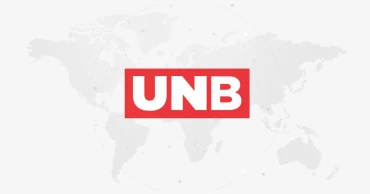
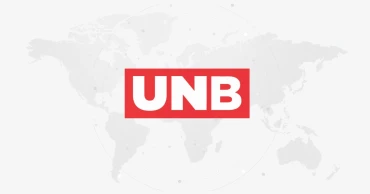
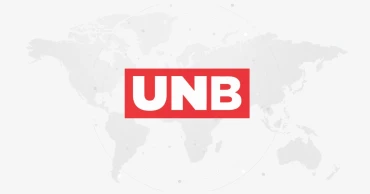
.jpg)

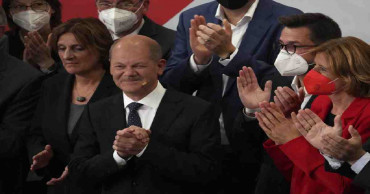

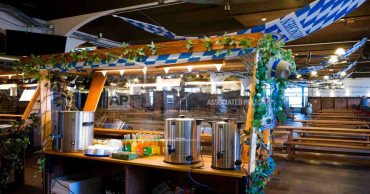
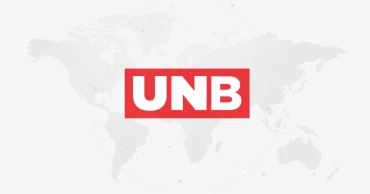
.jpg)





